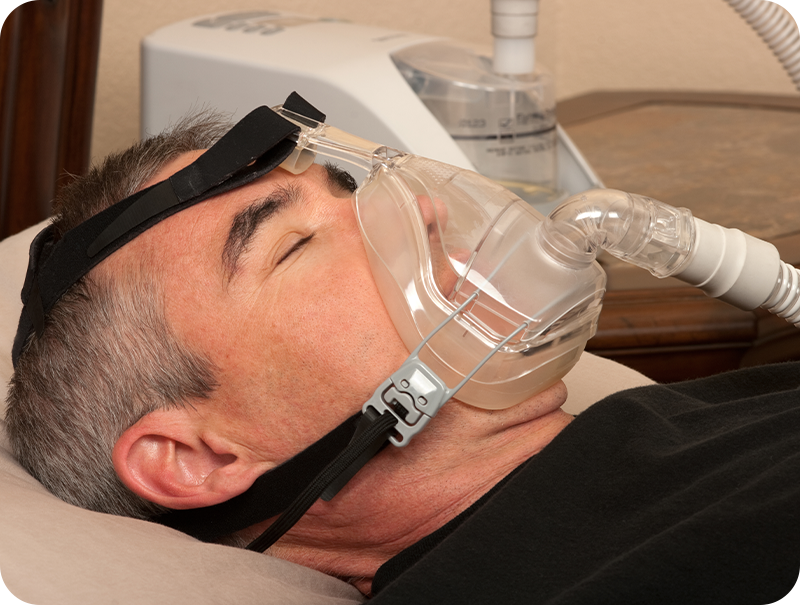Neuropathy refers to a condition characterized by damage or dysfunction of the peripheral nerves, which are responsible for transmitting signals between the central nervous system (the brain and spinal cord) and the rest of the body. Neuropathy is caused by conditions including diabetes, infections, traumatic injuries, autoimmune diseases, and exposure to certain toxins. As a consequence of nerve damage, individuals with neuropathy often experience a range of symptoms such as pain, tingling, numbness, and weakness in the affected areas.
Neuropathy can significantly impact a person's quality of life, affecting mobility and daily activities. Neuropathy is more than painful - it's also stressful, bothersome, and all-encompassing. It causes both men and women to become reclusive, depressed, and unable to enjoy life. If you're suffering from neuropathy, you might feel like all hope is lost. But the team at Texas Nerve and Spine are here to help.
Neuropathy relief in Foster, TX, is more achievable than you might think, and it doesn't need to involve harmful surgeries or addictive pain medications.

At our nerve and spine clinic in Foster, TX, we have a simple philosophy: Treat every patient the same way that you would treat your parent, spouse, or child if they were patients at Texas Nerve and Spine. As a family-owned and operated institution, that's just the way we do business. While some spine and nerve pain clinics focus solely on monetary transactions and ROI, we prefer to put our patients' needs first before anything else. And that, in a nutshell, is what sets Texas Nerve and Spine apart from all the others.
We supplement our patient-first philosophy with innovative neuropathy therapies. Our therapies restore our patients' health while correcting the underlying causes of their nerve issues without relying on damaging pharmaceutical drugs or expensive, invasive surgeries.
It all starts with our unique Brain to Body system - a cutting-edge approach developed specifically for people with chronic pain and nerve diseases. This system helps treat patients suffering from a wide range of conditions, including:
If you're in search of lasting relief and world-class therapies for neuropathy, our team is here to serve you.
To reverse neuropathy, areas of the body that have become weak due to disease or injury must be restrengthened. This encompasses your brain, nerves, muscles, blood vessels, and cells. Our experts at Texas Nerve and Spine developed the most advanced chronic pain and neuropathy therapy system to do all of this and more, and we call it the Brain to Body System.
From chemotherapy-induced peripheral neuropathy and extremity numbness to diabetic neuropathy and sciatica, our Brain to Body System helps restore your health and corrects the causes of your problems. Unlike treatments from other nerve and spine clinics, our system provides long-term relief without relying on invasive surgeries or dangerously addictive pharmaceutical medications.
To understand how our Brain to Body System solves chronic pain and similar conditions like nerve disease, you need a basic knowledge of the conditions themselves. That way, you can understand why so many who suffer from them rarely improve.


Neuropathy is nerve damage that causes pain, numbness, and burning in the extremities. This is a type of condition that does not get better on its own and it doesn't alleviate after the use of traditional medical treatments or prescription pain meds.
Pain from neuropathy causes a domino effect; it starts with inflammation, leading to decreased blood supply. This reduction in blood supply results in a lack of oxygen. When your body doesn't get enough oxygen, it loses crucial nutrients that your body needs. This progressive effect often leads to long-term problems such as:
But with our Brain to Body Strengthening System, patients suffering from neuropathy build strength through rehabilitation. This advanced system helps:
Our Brain to Body System is central to our approach to neuropathy relief in Foster, TX. By following our system, we can provide several services to patients suffering from neuropathy.

Breathing in higher levels of oxygen helps to improve your health. Exercise with Oxygen Therapy is a technique that increases oxygen circulation at a more rapid pace than oxygen therapy alone.
At Texas Nerve and Spine, our doctors use the NuStep Recumbent Cross Trainer. This specialized machine trains your muscles, brain, and nerves to work together, which supports your body's whole healing processes. While using the NuStep Recumbent Cross Trainer, patients are hooked up to an oxygen generator to enjoy the benefits of EWOT and reach their neuropathy relief goals.
When you oxygenate your blood with EWOT, it can have amazing benefits that can:



Many patients who visit Texas Nerve and Spine are suffering from neuropathy, due to spinal issues. This requires specialized kind of care from highly trained doctors. If you're in search of a safe, gentle, controlled treatment for nerve and spinal pain, Flexion Distraction therapy may be for you.
Finding relief for this type of condition and pain is often easier said than done. Fortunately, relief is right around the corner at Texas Nerve and Spine. Our Flexion/Distraction Table stretches the spine safely and gently, allowing injured tissue and damaged discs the chance to heal and become hydrated, which lets the affected area recover more effectively and efficiently, while taking the pressure off the nerves that cause the neuropathy.
Patients looking for neuropathy relief in Foster, TX choose Flexion/Distraction therapy because it:

With more than 20 million people in the U.S. suffering from neuropathy, it makes sense that most of them want a solution that does not require pain medication or invasive surgery. That's where laser therapy from Texas Nerve and Spine comes into play. Laser therapy has been used for therapeutic purposes in medical environments for years. In fact, it is FDA-approved and backed by more than 2,500 research studies, which have demonstrated its efficacy in neuropathy relief in Foster, TX.
Though laser therapy is a common treatment option, not all lasers are the same. Our Class IV laser therapy, used in all applicable programs, is the most efficacious and powerful laser available for tissue healing and regeneration and healing. Class IV lasers use photobiomodulation, which provides excellent results for Musculoskeletal disorders. This process has also been proven to help with other various conditions that cause chronic pain, such as sciatica, carpal tunnel syndrome, low back pain, shoulder pain, and much more.
Our chronic pain patients choose laser therapy from Texas Nerve and Spine because it:



When your motor functions are limited or non-existent from neuropathy, it can ruin your life. You lose the ability to be independent - one of the hallmarks of being human. Fortunately, with Motor Function Retraining Therapy at Texas Nerve and Spine, patients suffering from neuropathy related motor function issues have a light at the end of the tunnel. This type of specialized physical therapy helps people recover from neuropathy that leaves their motor functions lacking. The goal of Motor Function Retraining Therapy is to regain coordination and strength.
Motor Function Retraining Therapy is a crucial part of the motor function rehabilitation process because it helps patients regain the independence they lost. It helps patients return to their original level of motor function or better.


Based on our Brain to Body Strengthening System, our experts design custom exercise programs based on the patient's needs. We may also use electrical stimulation and other modalities for more effective sessions and recovery.
Motor Function Retraining Therapy provides many benefits, including:


Myofascial Release Therapy gives patients neuropathy relief in Foster, TX, and boosts mobility by loosening tight muscles. There are similarities to traditional massages, however, Myofascial Release Therapy focuses on soft tissues and the muscular system in your body to relieve tension and stress on muscles.
Tight muscles have reduced blood flow and less oxygen, leading to restricted movement and intense pain. Our system uses state-of-the-art technology to apply acute, high-velocity vibration directly to the affected tissue to provide the patient with the environment necessary to increase mobility and reduce pain.
Benefits of this type of therapy include:

When the nerves are weakened, due to neuropathy, pain develops, inflammation increases, and blood flow decreases. If you're searching for a safe, effective way to deal with painful spine related nerve issues Neuro Impulse Therapy may be a great option for neuropathy relief in Foster, TX. Unlike common chiropractic therapies, this advanced therapy does not involve any "cracking" or significant adjustments.
Any type of injury can cause dysfunction and weakness in your brain. To improve cognition and the neurological connection between the brain, the muscles, and the nerves, some injured patients choose to undergo Interactive Neurocognitive Therapy using our Neuro Activation Wall. This wall retains, strengthens, and restores proper function to the brain and nervous system without relying on medications or invasive therapies.
Neuro Impulse Therapy works by using very specific impulses directed at the area causing pain. These targeted impulses send a signal to your body so that it can begin healing and repairing your body naturally.
Texas Nerve and Spine patients choose Neuro Impulse Therapy because it:


Peripheral neuropathy occurs when there is a lack of blood flow to the nerves in areas like your feet and hands. When these nerves are devoid of blood, they begin to decay and degenerate because they don't have enough oxygen or nutrients. Eventually, the nerves in your body shrivel up, causing pain, numbness, balance problems, and other painful symptoms.
Our Brain to Body program works wonders for neuropathy issues like these by using state-of-the-art technology like laser therapy and personalized, strategic plans of action created around our patient's needs. If you're looking for both short and long-term pain relief from peripheral neuropathy, this could be the solution you need.
Spinal conditions that cause neuropathy range in severity from bearable to crippling. To get to the bottom of your spine conditions, our team uses X-Rays to pinpoint the location of your spine's disease. From there, we craft a custom rehabilitation program that addresses the underlying causes of your pain and neuropathy.


Spinal decompression works by gently stretching the spine. When the spine is stretched, it changes its position. This change relieves pressure off the discs in your spine, which act as cushions in your back. By creating negative pressure, herniated and bulging discs retract, giving the nerves and structures in your back relief. This relief sends nutrient-rich fluids and oxygen to the discs so they can heal properly.
Neuropathy can be debilitating. But it doesn't have to be permanent. Your journey to a neuropathy-free life starts with a simple four-step process at Texas Nerve and Spine:

At Texas Nerve and Spine, our doctors understand that true neuropathy relief in Foster, TX, won't happen until we can uncover its underlying cause(s). Our specialists will perform detailed exams and review your medical history to understand the full scope of your condition.

Once we have discovered the underlying reasons for your neuropathy, it's time to begin healing. Our team will work together to craft a personalized treatment plan to provide long-term relief for your neuropathy.

Our team has the experience and resources to provide you with your plan of care. This plan will be based on your needs and our Brain to Body Strengthening System, giving you the relief you deserve - naturally.

Neuropathy relief cannot be accomplished without a tested system and a purpose-driven team that supports your recovery. That's why our expert staff will assess your journey to recovery and be there for support every step of the way. Because when you are a patient at Texas Nerve and Spine, you're never alone.

